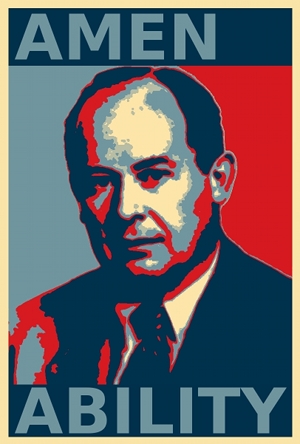Schedule
(click titles for abstracts)-
9:15–10:15
Yair Glasner
Actions of linear groups on sets and on probability spacesLet A = Z! be the full symmetric group of a countable set and B = Aut(X,µ) the automorphism group of a standard probability space. I will discuss the role of the Zariski topology in the study of representation of countable linear groups into these two Polish groups. I will illustrate the method by discussing the following two theorems.
Theorem 1 (joint with Dennis Gulko). For every sharply 2-transitive linear permutation group Γ, there exists a near field N (i.e. a skew field which is distributive only from the left) such that Γ is the semidirect product of N* and N.
Theorem 2. If a countable linear group acts by measure preserving transformations on a probability space (X,µ) in such a way that almost every point has an amenable stabilizer. Then the stabilizers are all contained in a common amenable normal subgroup. - Coffee break
-
10:45–11:45
Kate Juschenko
On simple amenable groupsWe will discuss amenability of the topological full group of a minimal Cantor system. Together with the results of H. Matui this provides examples of finitely generated simple amenable groups. Joint with N. Monod.
- Lunch break
-
14:15–15:15
Tatiana Nagnibeda
On percolation characterization of non-amenabilityWe will discuss Benjamini–Schramm non-amenabitily conjecture in relation with two values measuring non-amenability of a Cayley graph — the spectral radius of the random walk and the isoperimetric constant.
- Coffee break
-
15:45–16:45
Narutaka Ozawa
Quantum correlations and Kirchberg's conjectureI will talk about Tsirelson's problem on quantum correlations of independent bipartite systems. The problem is known to be equivalent to Kirchberg's and Connes's conjectures, and hence has a close connection with Gromov's problem asking whether every group is sofic.
